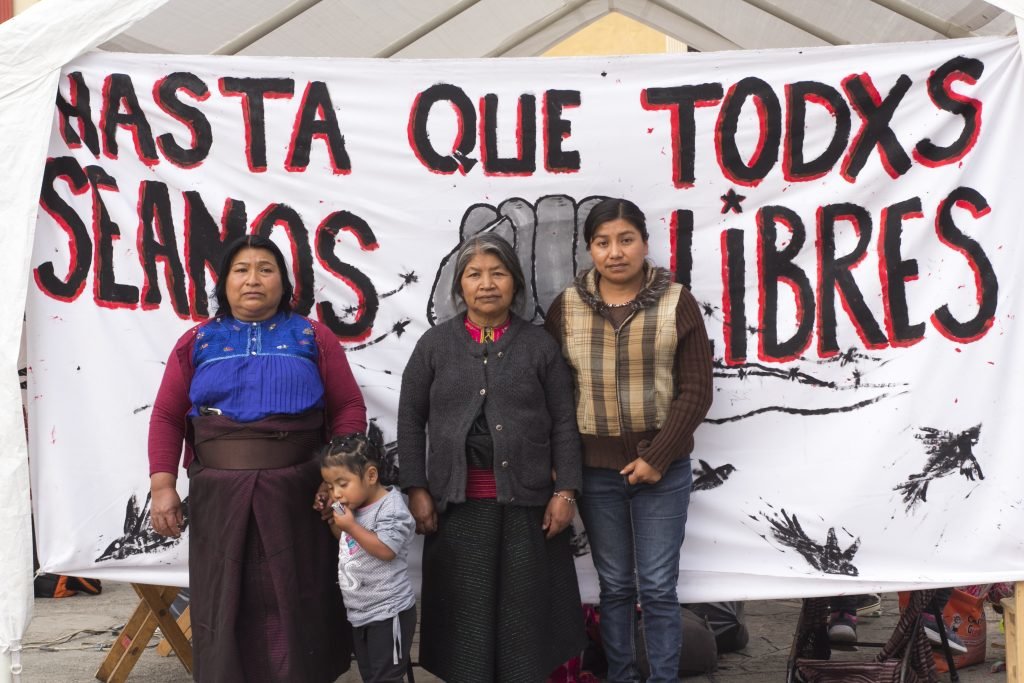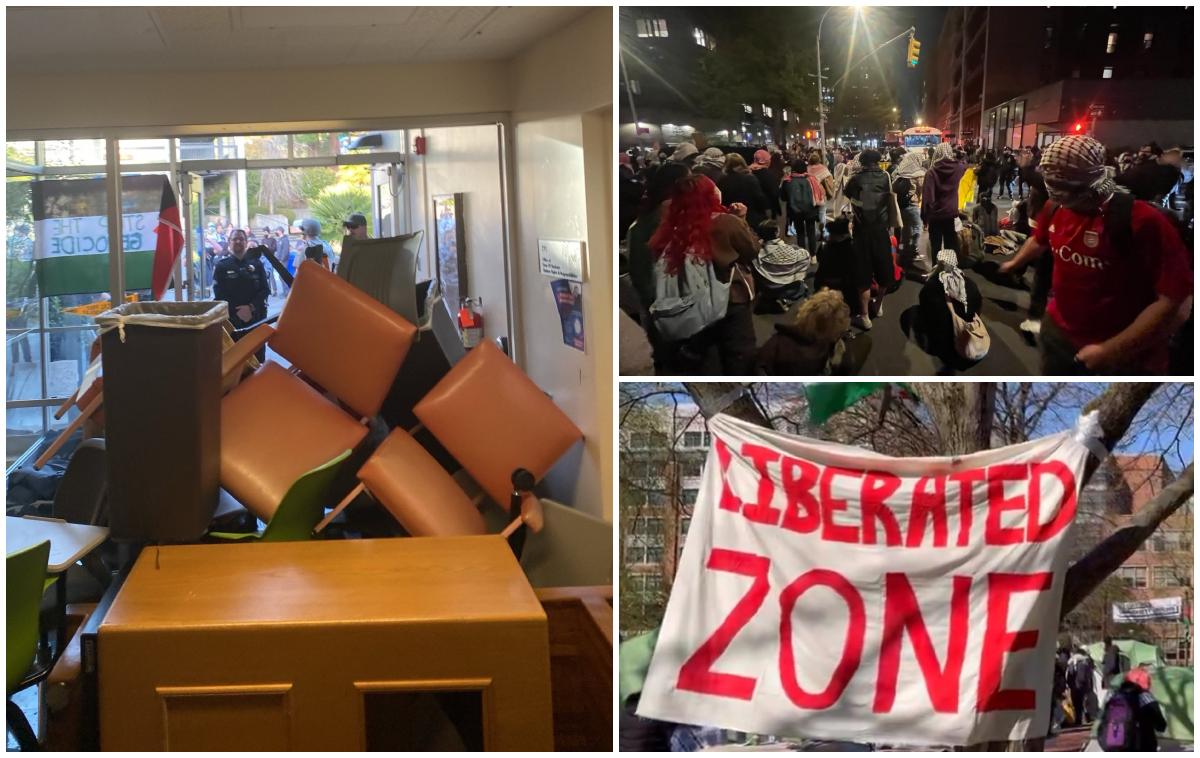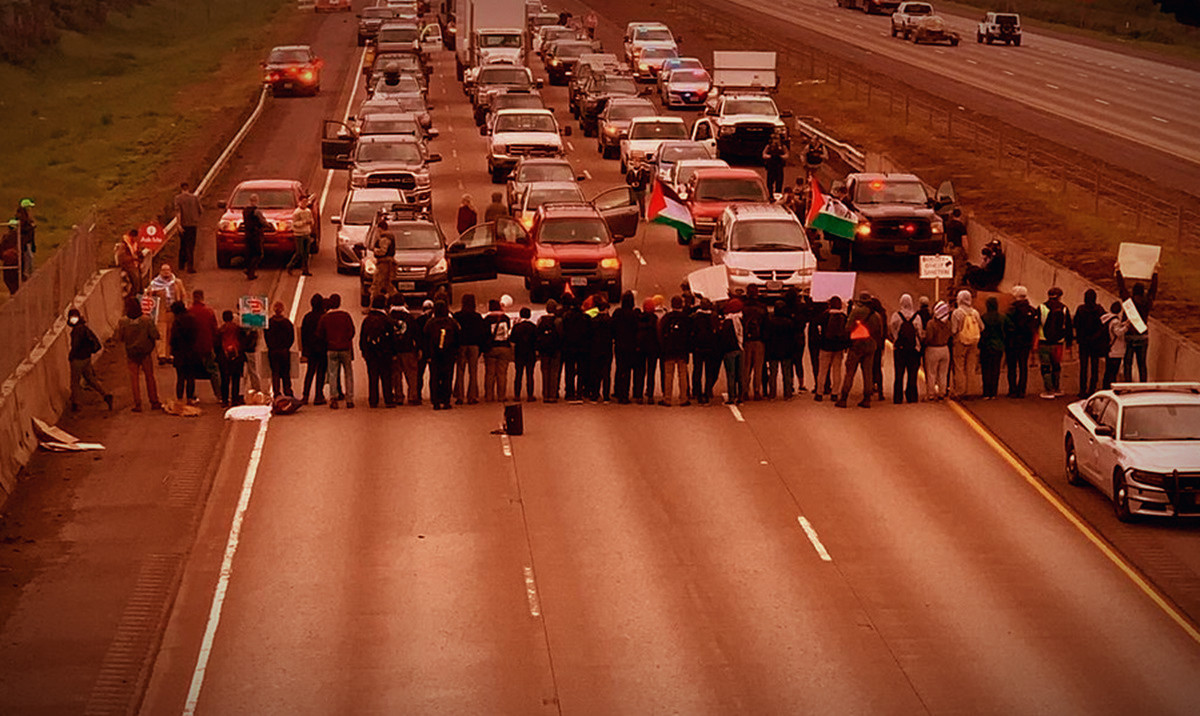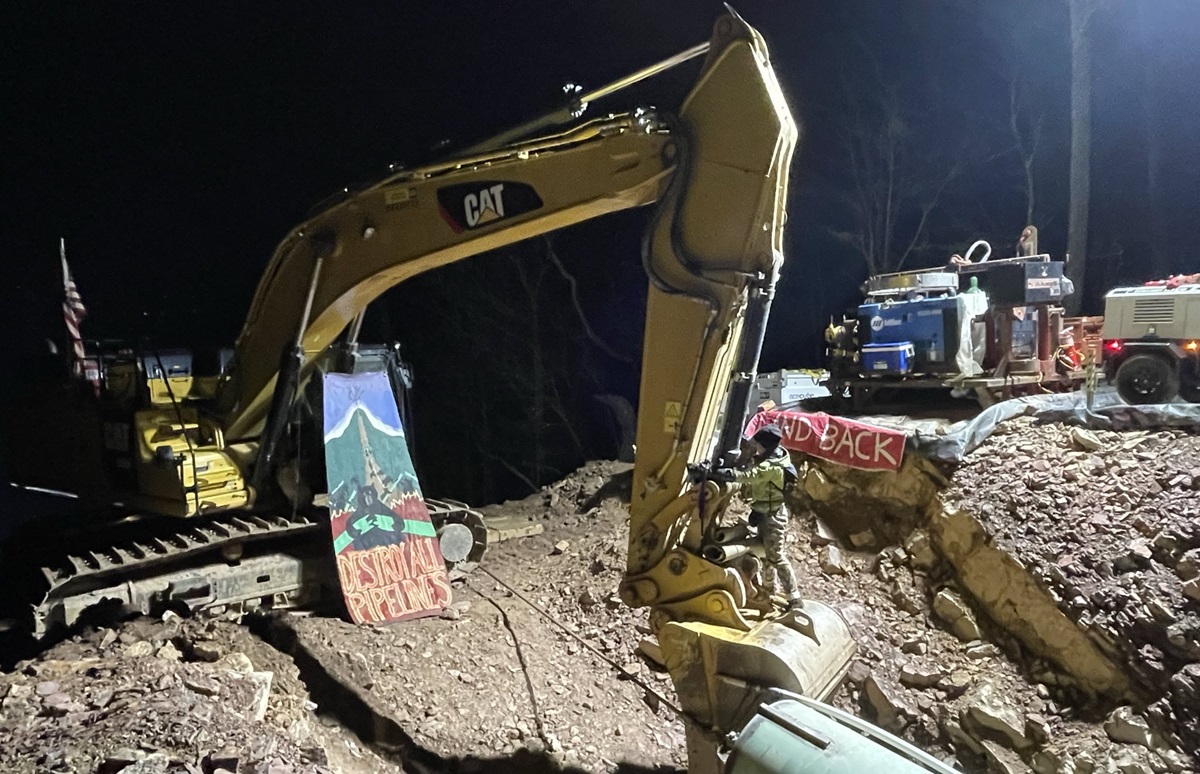Filed under: Incarceration, Indigenous, Southern Mexico
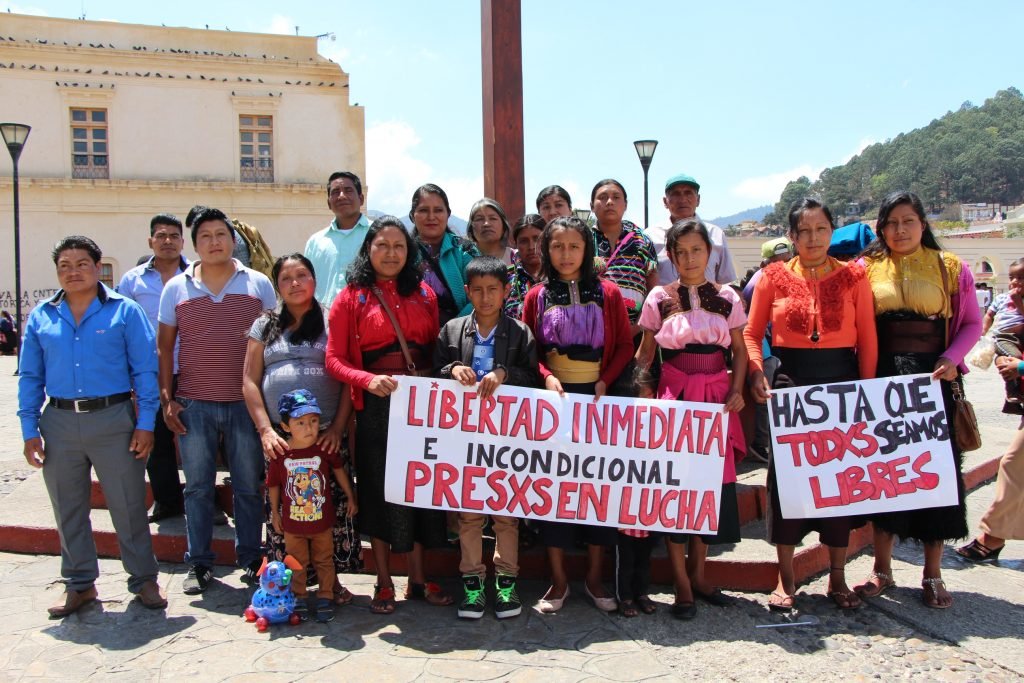
This communiqué comes from the Working Group No Estamos Todxs. It provides a historical recount of the development of the prison hunger strike in Chiapas, and an update on the situation after sixty days of the strike.
San Cristóbal de las Casas
May 6th, 2019
Beginning of Hunger Strike:
On March 15th, six imprisoned compañeros in different prisons of the state of Chiapas began a hunger strike, demanding justice along with their immediate and unconditional freedom.
Their names are: Adrían Gómez Jiménez and Juan de la Cruz Ruíz imprisoned in CERSS No. 5 of San Cristóbal de las Casas, members of the organization, La Voz de Indígenas en Resistencia; Abraham López Montejo and Germán López Montejo imprisoned in CERSS No. 14 of Cintalapa de Figueroa members of the organization, La Voz Verdadera del Amate; Marcelino Ruíz Gómez and Baldemar Gómez Hernández imprisoned in CERSS No. 10 of Comitán de Domínguez members of the organization, Viniketik en Resistencia.
In the days following, other imprisoned compañeros joined the strike declaring themselves prisoners in struggle. That is to say, others joined the resistance in supporting, sharing and being an active part of this action taking place inside of the prisons in Chiapas. For some, due to their health conditions or isolation, it was impossible to carry out such an action, since it meant a serious risk to their life and wellbeing.
Three days after the beginning of the hunger strike, six more people imprisoned in CERSS No. 5 in San Cristóbal de las Casas, members of the organization, Solidarios de la Voz del Amate, decided to undertake an indefinite hunger strike in solidarity with the six compañeros that had already declared a hunger strike. These compañeros also demanded their freedom.
Implicit Demand of the Hunger Strike:
Since that date, the prisoners, their families and friends, ex-prisoners and different social and human rights organizations have not ceased in carrying out activities of communication, accompaniment and denunciation, joining in the demands in this struggle for freedom.
As part of this hunger strike action, the imprisoned compañeros have used denunciations and communiqués to convert this battle against imprisonment into a constant condemnation of the harsh and difficult living conditions that the imprisoned population faces daily in the prisons of Chiapas. Health, the right to water and food, the justice and judicial systems, among others, have been constant themes in their public denunciations.
The legal processes of the compañeros are plagued with irregularities and grave violations of their human rights. Arbitrary detentions without arrest warrants, humiliation, the fabrication of crimes, statements extracted through torture, lack of translators, the loss of files, the violation of the right to adequate counsel, delays of up to 14 years in obtaining a sentence, the lack of presence on part of the accusers, among others.
This is only a small part of the stories of horror and injustice that make up the harsh reality that the imprisoned compañeros have had to face since the moment of their detention. Broken families, shortened life histories and serious physical, psychological and emotional repercussions that are difficult to repair at the individual and family level. Horrors that are in themselves an absurdity and the incapacity of the authorities to generate any clear process of valid justice.
First Dialogue with the Government:
This dignified struggle including the hunger strike and others forms of resistance, along with the actions undertaken from outside the prisons by families and support groups at the national and international levels, forced the government of the state to open a process of dialogue to study and give a solution to the demands for freedom. Four meetings were held between March 20th and March 29th.
The starting points of the dialogue were the following:
- Freedom of the prisoners—revision and study of the cases and the files
- Improvement of the conditions of the hungers strikers (An end to the isolation, degrading treatments, threats and coercion)
- Immediate, effective and adequate investigation and documentation of allegations of torture
The families concluded this dialogue on March 29th and held a press conference to share their decision. The decision from the families to rupture the dialogue was based upon discrimination on part of the government and the lack of interest in giving a real solution to the demand for freedom.
The proposal on part of the government was to move again the defense to the public defenders. This meant to return to the labyrinth of defenselessness that led them to begin the hunger strike in the first place. In so far as they have not been able to achieve an adequate defense, although it has been demanded at all times, the imprisoned compañeros and their families have no confidence in such a process, nor that it can be a solution to their demands. Rather, they suspect that it may be the opposite: a strategy of attrition, silence and invisibility.
That same day, two weeks after the start of the hunger strike, the imprisoned compañeros in Comitán sewed their mouths shut as a symbolic act of the silence imposed by the state.
Eighteen days had passed since the beginning of the hunger strike and the health of the compañeros had already began to suffer. At this point in the strike, they had to face different situations of aggression, coercion, isolation and threats. And beyond all this, there was nothing on the horizon exemplifying an advance in the willingness of the authorities to give attention and a solution to the conflict.
From that moment on, it was demanded of the state and federal governments to create an adequate space with competent bodies that have the capacity to make decisions that could fully meet the demands of this process of struggle.
Second Process of Dialogue and Act of Good Faith:
On April 10th, a new process of dialogue began with the Government of the State of Chiapas. On this occasion, the functionaries responsible for the final decisions and the dialogue were the Secretary of Government, Ismael Brito Mazariegos, working on behalf of the governor of the State of Chiapas, Rutilio Escandón Cadenas, and the Director of Human Rights of the Government of the State of Chiapas, Dr. Francisco Fernando Pérez Robles. Also the sub-secretary of the government of Chiapas, Dr. Jorge Cruz Pineda, was involved.
In this dialogue, the governmental representatives committed to giving a response to the demands of the hunger strike. In return they asked for a show of good faith from the prisoners to be able to carry out their work of the revision of files without additional “pressure” on part of the hunger strikers.
Faced with this, the hunger striking prisoners decided to fulfill the act of good faith for the process of dialogue and resolution. As such, they gave the state time to review the files, dictate the missing sentences, bring the cases to the reconciliation table and advance in the investigation of the cases of torture. Up to this moment, there are 20 compañeros who are part of this process of struggle, and symbolically 20 days were given to the authorities responsible for this dialogue to give a response.
The prisoners decided to continue with their struggle in the spaces where they are carrying out their political action, and to ingest food every third day. These foods would be the minimum, and indispensable so that their bodies have the capacity to return to a total hunger strike in the case that their demands are not heard.
This deadline ends on May 13th. Up to this moment, beyond the administrative management of the conflict, there has been no progress in terms of real concrete responses. Alluding to the workload, the holiday period, the difficulty of the agenda and the problems of communication with other agencies necessary for the advances, the authorities have been delaying the processes and avoiding providing concrete answers to present a resolution to the conflict.
During this period, all the meetings that have taken place have lacked the will to meet demands of freedom and justice of the prisoners in struggle. And more than a phase of resolution, it has been a process of physical, economic and emotional exhaustion for the families and the prisoners. Faced with this, the prisoners, their families, compañerxs and friends view the situation with suspicion and concern.
Current Situation:
After almost 60 days since the beginning of the hunger strike, there has been no response to their demands. There is no clear revision of the files, not from a legal perspective, nor a political or human rights perspective. There has been no clear response into the investigation of torture. The files that needed their sentencing continue without them and there is no knowledge that any case is in a process of reconciliation.
On May 2nd, two comrades were transferred from CERSS No. 14 “El Amate” to CERSS No. 5 in San Cristóbal de las Casas. This transfer is a right of all imprisoned people and cannot be considered an advance in the dialogue.
That is to say, beyond the wear and tear, there is nothing that makes us think of a way out of this conflict other than continuing the hunger strike in demand of justice and freedom. Everything points to the fact that the integrity, health, security, life of these people, as well as their freedom, is not something that is on the agenda of the government. The changes of which the government boasts in their speeches, do not seem to coincide with the reality, and it seems the only alternative in the search for justice is to risk one’s life in trying to achieve it.
We do not know what will be the response of the compañeros in struggle in the face of the latest lack of attention to their demands. They have told us of their intention to return to a total hunger strike, but also their communiqués speak of more forceful actions. Their families have expressed concern that something could happen and that this will have a more dramatic outcome. But also their families say that they will be by the side of the prisoners and they will accompany them in all of their actions and decisions.


